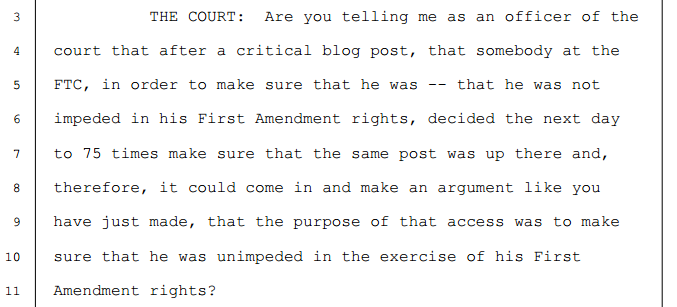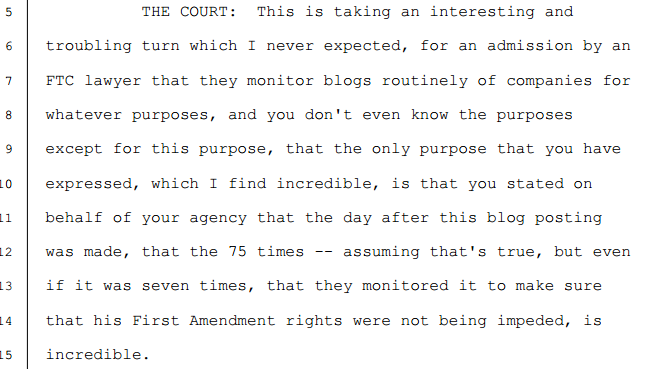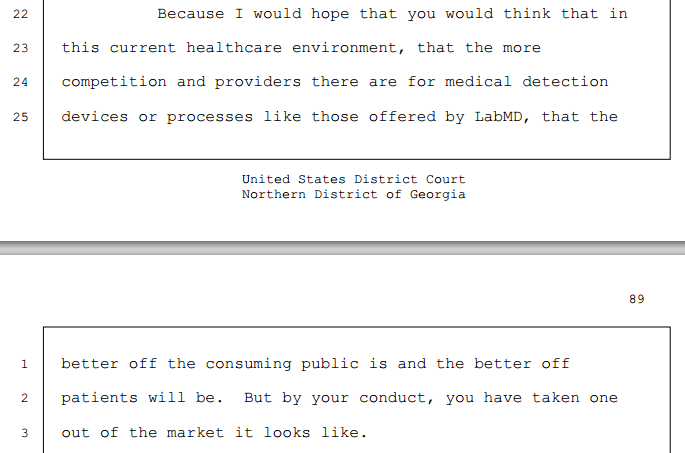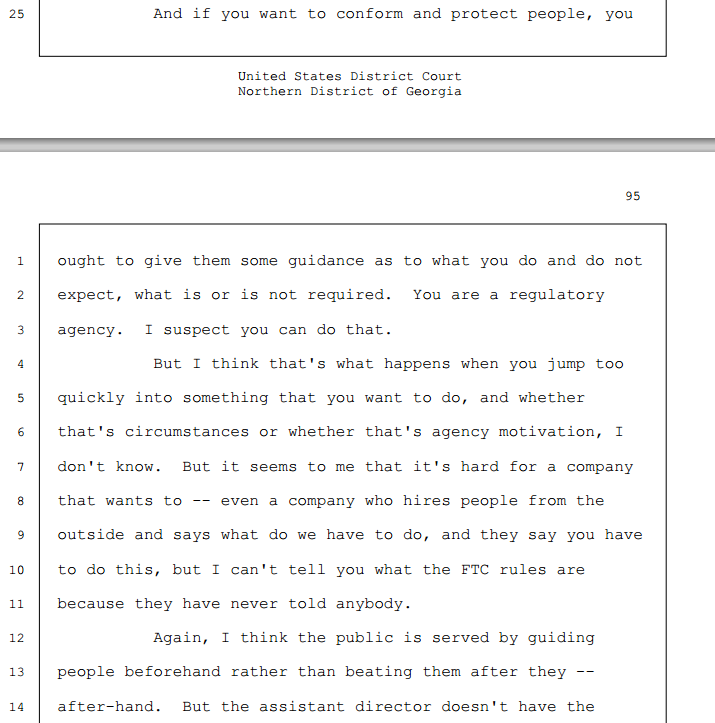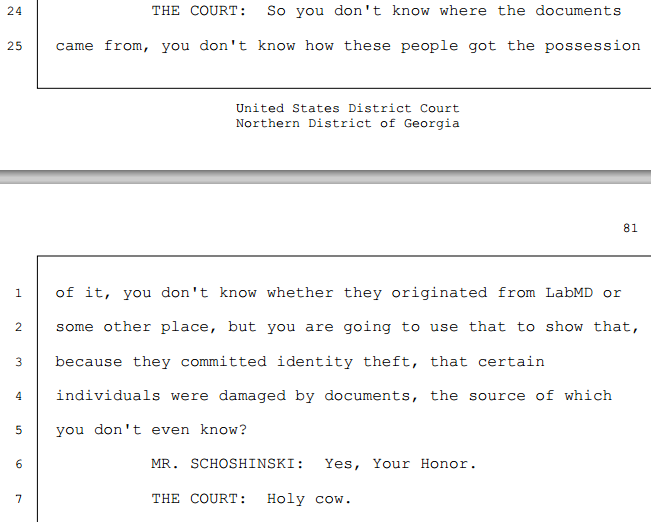In a hearing before U.S. District Court Judge William Duffey in the North District of Georgia, the government made some ridiculous arguments and was criticized by a federal judge for shutting down a small business without providing any guidance. Here are some of the highlights from the hearing:
The government claims it monitored a private citizen’s website to ensure he was still able to express his free speech rights
A Department of Justice attorney claimed that Federal Trade Commission employees regularly visited LabMD CEO Michael Daugherty’s personal website to “monitor whether or not he’s still continuing to express his speech.” Judge Duffey responded:
The transcript continues:
Judge Duffey criticizes the FTC’s actions in reducing the amount of competition in medical detection business by driving LabMD out of the market.
Should a federal agency be able to go after people for not complying with guidance they haven’t given?
What about the government claiming to use documents as evidence against LabMD when it doesn’t know where the documents came from?
